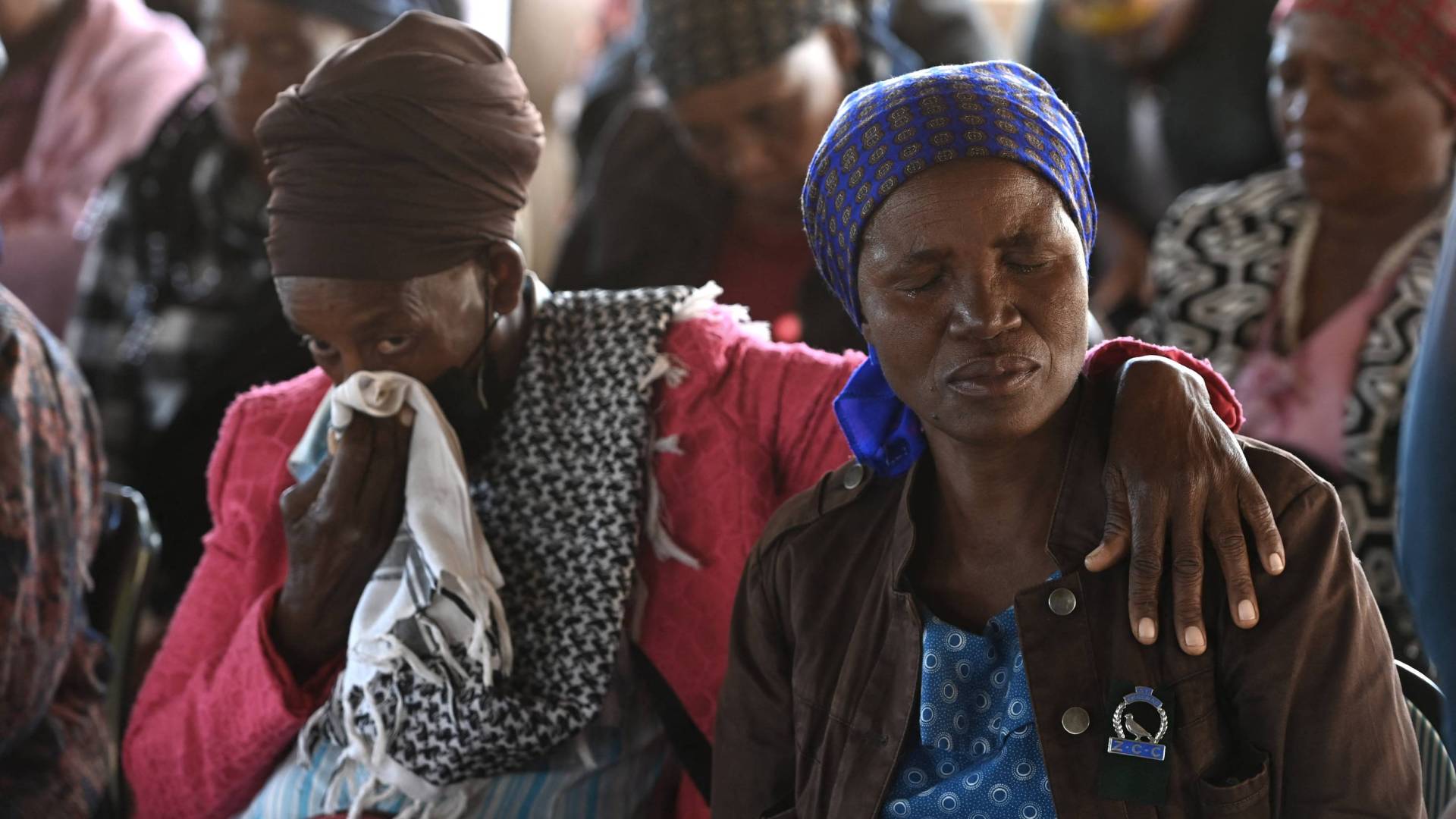Botswana will hold a national memorial service on Thursday for 45 people who died traveling to an Easter event in South Africa. An eight-year-old girl, Lauryn Siako, was the only survivor after a bus bound for Zion Christian Church crashed through barriers and fell 164 feet down a ledge last week.
In the days following the deadly accident, pastors in Botswana have appeared on national television to pray and to comfort the grieving.
“This tragedy calls us to come out of our sleeping moment and be ever praying and declaring the protection of God in any given situation,” said David Seithamo, the head of the Evangelical Fellowship of Botswana. “The nation should gather around to really support those that are grieving at this moment. When they mourn, we should mourn, but they should know that Christ remains our comfort.”
The pilgrims from Botswana were among millions who travel each Easter to Moria, a town in northeast South Africa and the headquarters for Zion Christian Church (ZCC, pronounced zed-c-c), one of the largest African-initiated churches in the region. ZCC has churches across Southern Africa, including Botswana, Lesotho, Zimbabwe, Zambia, Mozambique, and Malawi.
The church has two branches, ZCC and St. Engenas ZCC. This year marks the 100th anniversary for the latter, and South African president Cyril Ramaphosa attended the celebration event. Though pilgrims also showed up at St. Engenas in 2023, this is the church’s first official pilgrimage event since the pandemic.
Given the number of tourists usually packing the roads over Holy Week, the South African government had previously checked the capacity of drivers and the safety of cars.
Siako told officials the bus was following two cars carrying church elders when it careened into the ravine. It was the first time that pilgrims from Botswana’s capital, Gaborone, took this route to Moria. One South African journalist suggested that they had opted for the winding mountain road to avoid the onslaught of traffic.
Jobe Koosimile, the former president of The Apostolic Faith Mission in Botswana, called it “just a miracle” that the young girl was able to survive.
In an official statement, Seithamo encouraged his fellow Chistians to keep praying for “the bereaved families and speedy recovery of the eight year old sole survivor of the accident.”
“We also commend the efforts of the Government of Botswana through the Embassy of Botswana in South Africa together with Government of South Africa for a surmountable help to the bereaved,” he wrote. “We implore Christian leadership to continue offering prayer and godly counsel to the bereaved families.”
African roads are notoriously hazardous. Traffic accidents are the leading cause of death for those on the continent for adults under 50; about 1 in every 5 deaths in Africa occurs on the road.
In Botswana, vehicle insurance companies have partnered with at least one national Christian ministry to promote road safety.
“Road safety is something that as the church, we are conscious of, whether it’s the Pentecostal church, the Organization of African Instituted Churches, or a mainline church, we really are conscious of and consider road safety something of critical importance,” said Koosimile.
“When it comes to national holidays, road safety is something that is emphasized on both the national radio and the national TV, and you’ll find that there are even roadblocks almost throughout the country, where our police and traffic officers do [road safety] campaigns. It’s something that is really strongly emphasized.”
Despite the country’s large geographic size—Botswana is slightly bigger than France—only 2.4 million people live there. About 80 percent are Christian.
“We have never experienced something like this in our nation. We have never had so many deaths like this in our nation. It has shocked almost everyone,” said Koosimile.
“Losing 45 people is not a joke for our very small population. It’s quite a tragedy. Mostly we are related, and [you’ll easily] find that one is related to one who is either affected or who [died] in the accident.”
Botswana is home to many Zionist churches and a sizable population of ZCC members.
The growth and prevalence of ZCC has “essentially sidelined the traditional Protestant churches that introduced Christianity to southern Africa,” wrote African studies researcher Barry Morton. “In addition to their vast membership base across the region, they also control extensive business empires in areas such as transport, agribusiness and insurance.”
Some estimate as many as 1 in 10 South Africans are members.
ZCC was founded a century ago by Engenas Lekganyane, a South African who grew up among Lutheran and Presbyterian missionaries and later joined Pentecostal, Zionist, and faith-healing movements.
According to Morton, “he took most of his theology from the then white-led Apostolic Faith Mission, a Pentecostal group he belonged to from 1910 to 1916. He incorporated many syncretic practices taken from African tradition.”
The two branches, both in Moria, are led by Lekganyane’s grandson (ZCC, represented by a star) and by his great-grandson (St. Engenas ZCC, represented by a dove). Their theology continues to reflect many of Lekganyane’s teachings, with uniforms and badges for members, an emphasis on healing and warding off evil, and the practice of ancestral intercession.
Despite the massive pilgrimages, the group maintains a degree of secrecy over its practices and beliefs.










